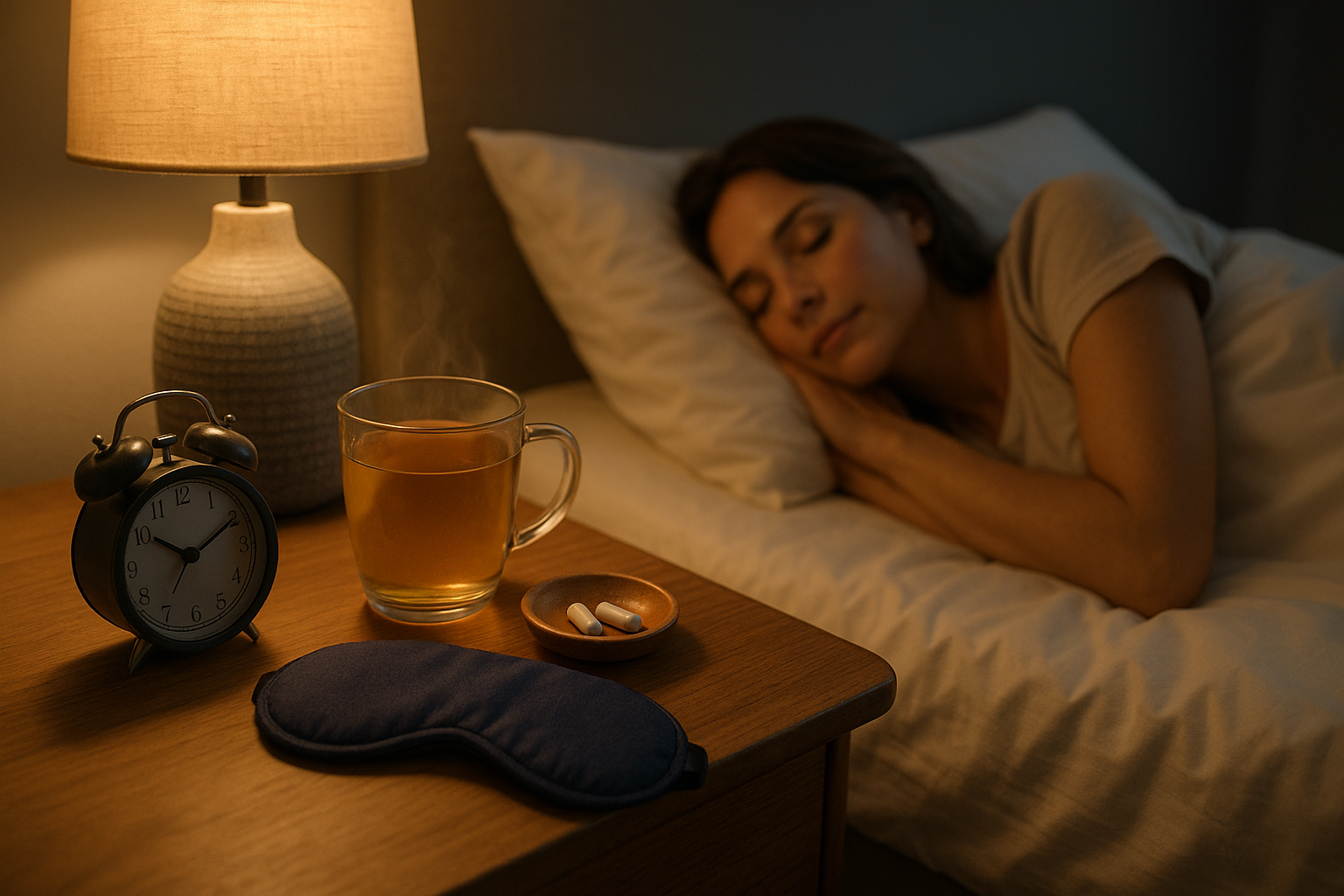Getting enough quality sleep is one of the most fundamental aspects of maintaining overall health and emotional well-being. Yet, in today’s fast-paced and screen-dominated world, more people than ever are struggling with poor sleep patterns, insomnia, and nighttime anxiety.
In this article, we’ll dive deep into actionable strategies for improving sleep quality — from establishing a sleep-friendly routine to adjusting your environment and daily habits for better rest.
Why Sleep Matters So Much
Sleep plays a crucial role in restoring both the mind and body. While you sleep, your body repairs tissue, balances hormones, and consolidates memories. Chronic sleep deprivation has been linked to weight gain, weakened immunity, increased stress levels, and poor emotional regulation.
Adults generally need 7 to 9 hours of uninterrupted sleep per night. Quality is just as important as quantity.
1. Set a Consistent Sleep Schedule
Your body has an internal clock called the circadian rhythm. Going to bed and waking up at the same time every day — even on weekends — helps regulate this rhythm and makes falling asleep easier over time.
Try this: Set an alarm not only for waking up, but also for going to bed. After a few weeks, your body will begin to adjust naturally.
2. Create a Relaxing Bedtime Routine
Just like a child’s bedtime story or bath helps them wind down, adults benefit from calming rituals before sleep. A consistent routine signals to your brain that it’s time to transition from activity to rest.
Ideas to include in your nightly routine:
- Warm herbal tea (chamomile, valerian root)
- Light stretching or gentle yoga
- Listening to calm music
- Reading a physical book
- Journaling about your day or writing down tomorrow’s to-do list to ease mental clutter
3. Optimize Your Sleep Environment
Your bedroom should be a sanctuary for rest. Small adjustments can have a big impact on how quickly and deeply you fall asleep.
Checklist for a better sleep space:
- Temperature: Keep your room cool — around 18°C to 20°C (64°F to 68°F)
- Darkness: Use blackout curtains or a sleep mask
- Silence: Eliminate noise with earplugs or white noise machines
- Comfort: Invest in a good mattress and comfortable bedding
- Technology-free zone: Remove TVs and avoid phone usage at least 30–60 minutes before bed
4. Limit Caffeine and Stimulants
Caffeine can stay in your system for up to 8 hours, affecting your ability to fall asleep. While morning coffee is fine for most, drinking caffeinated beverages in the afternoon or evening can disrupt your rest.
Tip: Replace afternoon coffee with herbal tea or a warm glass of almond milk to prepare your body for sleep.
Also, avoid heavy meals, nicotine, and alcohol close to bedtime — all of which interfere with deep, restorative sleep.
5. Get Exposure to Natural Light During the Day
Spending time outside in natural light helps regulate your sleep-wake cycle by influencing melatonin production — the hormone that makes you sleepy.
How to do it:
- Go for a walk in the morning or during lunch
- Open your blinds early
- Work near a window when possible
Even 15 minutes of natural light exposure can make a difference.
6. Move Your Body (But Not Right Before Bed)
Physical activity during the day contributes to deeper sleep at night. Regular exercise helps reduce stress, burn excess energy, and stabilize mood.
However, vigorous workouts right before bedtime may increase alertness or elevate your body temperature, making it harder to fall asleep.
Best practice: Aim to complete workouts at least 3 hours before going to bed.
7. Manage Stress and Overthinking
Stress and racing thoughts are major culprits in sleep disruption. It’s hard to sleep when your mind is stuck in replay mode, thinking about work, responsibilities, or life’s uncertainties.
Try these calming techniques:
- Meditation: Even 5–10 minutes of breathing meditation before bed can ease tension.
- Gratitude journaling: Write 3 things you’re thankful for to promote a positive mindset.
- Progressive muscle relaxation: Tense and release each muscle group to promote physical calmness.
8. Avoid Naps That Are Too Long or Too Late
Short naps (15–30 minutes) can be refreshing, especially in the early afternoon. But long or late-day naps can disrupt your body’s natural sleep rhythm.
If you must nap, keep it short and early in the day — ideally before 3 p.m.
9. Monitor Your Screen Time at Night
Blue light from screens suppresses melatonin production, tricking your brain into thinking it’s still daytime.
What you can do:
- Use blue light filters or glasses in the evening
- Switch to “night mode” on your devices
- Turn off electronics at least 1 hour before bed
- Replace screen time with relaxing, screen-free activities
10. Don’t Force Sleep — Get Up if You Can’t Sleep
Lying in bed tossing and turning can increase anxiety about not sleeping, making the problem worse. If you can’t fall asleep after 20–30 minutes, get out of bed and do a quiet, non-stimulating activity (like reading or stretching) until you feel sleepy again.
Avoid checking your phone or turning on bright lights. The goal is to stay relaxed and allow your mind to naturally slow down.
Start Tonight: Build Your Own Sleep Ritual
Improving your sleep doesn’t require drastic changes overnight. Choose one or two of these tips and start applying them tonight. Small changes — like dimming the lights earlier or stretching before bed — can have a powerful cumulative effect over time.
Good sleep is the foundation of productivity, emotional stability, and long-term health. By making it a priority, you’re choosing a better life, one restful night at a time.
